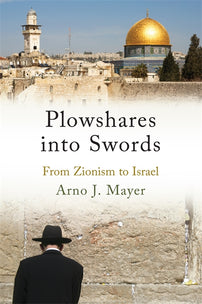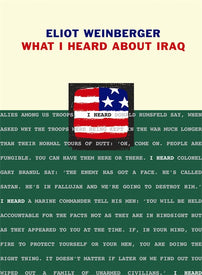The United States and Gaza
Eliot Weinberger makes sense of the response in the United States to the invasion of Gaza.

How can one make sense of the response in the United States to the invasion of Gaza? On one side, massive demonstrations against the war and in support of the Palestinians. On the other side, universities banning such demonstrations and pro-Palestinian or antiwar student groups; individuals who support Palestine (or who have ever supported Palestine) losing their jobs (or the prospects of jobs for law or business students) or having their public events canceled; and even innocuous things, such as an exhibition of classical Islamic art, indefinitely postponed.
The United States is not Germany, forever locked in moral reparations for the Holocaust and the inability to separate criticism of Israel with antisemitism, or France, with an institutionalized Islamophobia that is even threatened by head scarves. America—with the exception of Putin’s inexplicable allies in the Republican Party—was quick to denounce the invasion of the Ukraine and its slaughter of civilians. Why, then, is a stand against the murder of thousands of children, the displacement of almost two million people, the rubble of what were once hospitals and schools, controversial?
It may be because Israel pertains more to religious faith than terrestrial morality. Israel is a site of veneration for American Jews and evangelical Christians—the Holy Land—and it therefore must operate on a plane higher than that of ordinary nations.
It has often been said that Judaism is an ethnic or cultural religion rather than a credal one. Beyond the belief in the one God, it is largely a set of practices and moral or legal codes. Unlike most religions, it is vague on what happens after death. In the absence of heaven, the faith of Jews in the postwar period has centered on a heaven on earth in the eastern Mediterranean.
American Jews were spared the Holocaust, and notoriously rarely spoke about it until the publication in English of Elie Wiesel’s Night in 1960 and the Eichmann trial in 1961. This ultimately led to what has been called the Spielbergization of the Holocaust: the often kitsch expressions of outrage against an injustice that American Jews did not suffer. But before that, in the 1950s, when Jews were still silent about the Holocaust, Israel seemed to embody the most popular American myth of the time: How the West Was Won.
Most of prime-time television then was Westerns— eight of the top ten television shows in 1959, for example—and school children were experts on figures rarely mentioned now, like Davy Crockett (“King of the Wild Frontier”) and Daniel Boone. Like the Americans, the Jews had thrown out the British to tame a wilderness—a wilderness that was, of course, inhabited. Israel was the “land of milk and honey,” where the Jews were celebrated for turning the desert green. (American Jewish children raised money for popular and ubiquitous “plant a tree in Israel” campaigns.) And, in the Holy Land version of this myth, the original inhabitants, the Palestinians, played the same role as Native Americans: They were either unmentioned, or seen strictly as hostile obstacles to the march of progress.
Israel was also seen as a paradise for progressives. After the disillusioning disaster of the Soviet Union, the kibbutzim were imagined as collectivist pastoral utopias, where men and women were equal partners and wealth shared by all. It is characteristic of the general faith in Israel that these same progressive American Jews, who enthusiastically supported the struggle for civil rights in the US— a solidarity rising from a growing identification with blacks as an oppressed people and as victims of history—at the time did not consider the rights of the Palestinians, or make the connection between Alabama and the villagers the kibbutzim had driven out.
When the reality of Israel finally became apparent, progressives launched the BDS movement in the early 2000s, and with the 2006 Lebanon War—more than a thousand civilians killed and a million Lebanese displaced in retaliation for the deaths of three Israeli soldiers—the first cracks appeared in the monolith among even the mainstream American believers. It was actually a shock to see the New York Times, traditionally an uncritical adherent, publishing photographs of the devastation Israel had wrought on its front page. And in recent years, more chips from the monolith have fallen with the murderous militancy of the settlers, the antidemocratic machinations of Netanyahu, and the rise to significant power of groups that can only be labeled as Jewish supremacists.
And now Gaza. It is impossible to imagine how it will end. Hamas, like all revolutionary groups, believes that the ends justify the means, that, as Lenin said, one doesn’t make an omelette without breaking eggs. They knew that their attack on Israel would provoke Netanyahu to retaliation—perhaps they didn’t anticipate how excessive it would be. And that the retaliation would not only create tremendous world sympathy for the Palestinians, as it has done, but also strengthen support for Hamas among the Palestinians. A radical is a moderate whose children have been killed.
On the other side, it has been the Israeli self-image of a fortress besieged and the resulting obsession with feeling safe that has led to the passive acceptance of the apartheid state. This has been shattered by the security failure that led to the Hamas attack. What will happen with the realization that apartheid—moral questions aside— has been a failure in protecting the everyday lives of ordinary people? It is a difficult to imagine a reconciliation between those who use the Holocaust—of which there are now almost no living survivors—as an excuse for their brutality, and those who long to live in a country where life is lived relatively normally.
In recent years, many of the latter have left to live in what was the original dream of Zionism: A place for Jews to live in peace, without oppression, free to practice their religion or not practice it at all, and with a kind of invisibility, where one becomes just another person, with the freedom to decide if one wants to be considered the member of a group.
New York City has been that place for a century, and it may well be that the diasporic Zion is the true Zion. The population statistics are the subject of continual debate, but roughly there are 15 million Jews in the world. Seven million are in Israel, six to seven million in the US, and somewhat more than a million elsewhere (mainly in France, Canada, and the UK). As is well known, the eight million diasporic Jews have been extraordinarily prominent, far beyond their portion of the general population, in the arts, literature, sciences, medicine, business, law. (The proportion is even greater if one considers that a million of the diasporic Jews are ultra-orthodox, and generally do not contribute to society at large.) The genuine antisemites in the US—the goons with the tiki torches and the goons in Congress, not the pro-Palestinian demonstrators—are responding specifically to that success among the Jews.
In contrast, of the seven million Israeli Jews who continue to live in Israel—one million of them ultra-orthodox—there are only a relative few who have achieved such prominence. Why is this the case? One must apply a traditional Jewish preoccupation and ask: Is Israel good for the Jews?
There is an alternate history to be imagined, where Roosevelt had opened the doors of unlimited immigration for Jewish survivors after the war, where Palestine became a postcolonial multiethnic nation among similar multiethnic eastern Mediterranean nations, which had then no cause to expel the Jews. But the world is doomed to live in the history that happened.
One hopes for an immediate ceasefire, and an end to the killing of children. But one wonders if there is any hope beyond that. Perhaps it begins with the recognition, among the diasporic Jews, that Jews are as capable of becoming monsters as anyone else.
[book-strip index="1" style="buy"]



